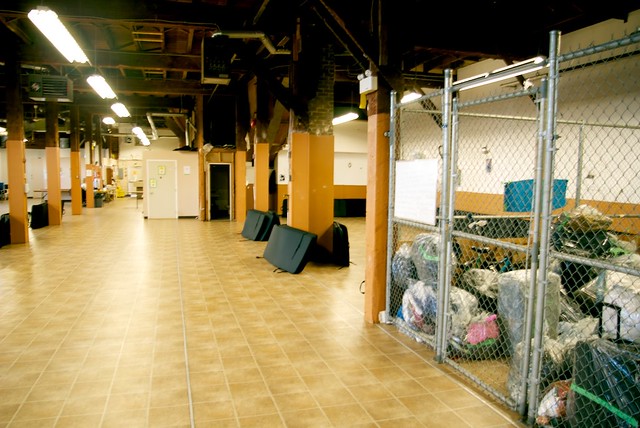Five homeless shelters are scheduled for closure in Vancouver this week because the provincial government refuses to regularize funding. Each of the 5 shelters has a capacity of 40 people.
One of the five shelters, at Fir and 4th, was already shut down last Wednesday. About half of those kicked onto the street were seniors, according to Gail Harmer of the Council of Senior Citizens of BC (COSCO). Some of the seniors were offered SRO units in the Downtown Eastside, but all refused because of the deplorable conditions of the SRO units.
Three of the shelters, run by RainCity, are set to be shut down this week. One of these, the Cardero St. shelter in the West End, is set for closure this Wednesday, April 27th, despite support from many local organizations – even the Downtown Vancouver Business Improvement Association (DVBIA). There had been a noticeable reduction in street homelessness in the West End, but since the Cardero St. shelter stopped accepting new residents at the start of April, more people are living on West End streets.
A coalition of organizations is scheduled to hold a press conference at the Cardero St. shelter tomorrow demanding that all the shelters be kept open until appropriate housing is secured for the shelter residents (see media release below).
The fifth shelter is the New Fountain shelter on Cordova St. Earlier today, Housing Minister Coleman announced that he would extend funding for the New Fountain shelter for only two months, and would not fund the other four shelters at all. This announcement was timed to distract from the fact that four shelters are being shut immediately.



